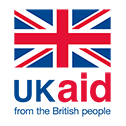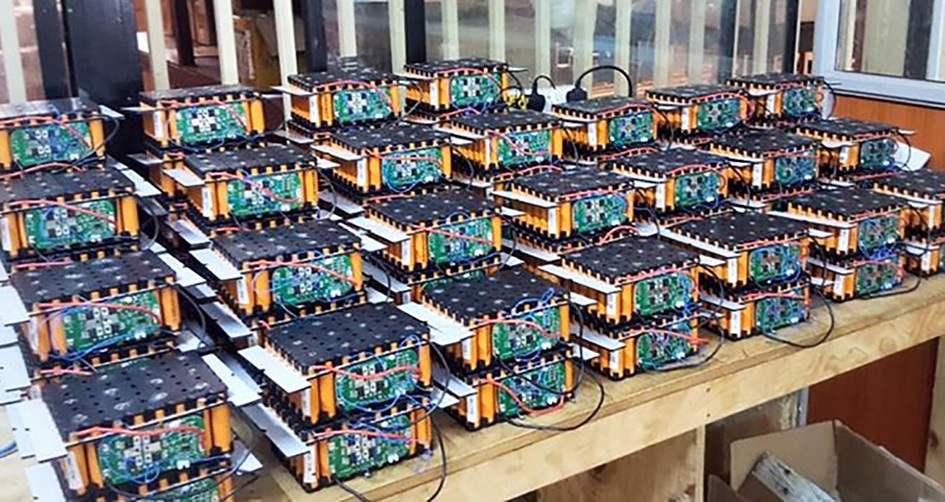Sub-Saharan Africa (SSA) has the lowest energy access rates in the world, leaving roughly 600 million people without power.

SF partner Aceleron – co-funded with UK aid from the UK government and supported by Tripleline – has produced a report showing how lithium battery technology can play a critical role in reducing this deficit and deliver the SDG target of universal access to affordable, reliable and modern energy services across Africa by 2030.
Lithium batteries have many advantages over their traditional lead acid counterparts. They are lighter and smaller, have an extended life cycle, can charge and discharge at a high rate, are more resilient in harsh climates, require limited maintenance and have a low self-discharge rate.
However, despite their versality, lithium batteries still face challenges in their application across Africa. They are more expensive to manufacture than other batteries, making them less affordable for the communities where they are most needed. As well as this, their end-of-life management is challenging as metals can readily leak from the casing of discarded batteries and contaminate soil and groundwater, threatening ecosystems and health.
Aceleron’s technology and business model responds to these challenges in four main ways:
1. Demonstrating the potential for sustainable lithium battery technology
Aceleron’s lithium battery technology has the potential to address both challenges. The battery’s “core” can be easily taken out of the box, facilitating easy upgrading, or servicing, making it easier to realise residual value, and therefore reducing through life costs and raw material use. The batteries are also made from recycled materials, further reducing costs and creating a circular economy that keeps waste and environmental impact to a minimum.
2. Successfully building local supply chains in Africa
The company’s recent business model innovations have contributed to further reductions in production costs and improved affordability. Aceleron’s initial supply chain model, which involved shipping component parts from China to the UK for battery build and onward shipment to Africa, has been streamlined, with parts now shipped directly from China to Africa for build in-country. As a result, production costs have fallen significantly, emissions have been reduced and the supply chain is more reliable and responsive to local demand.
Aceleron have successfully used unskilled labour to produce high quality battery packs. Using the Aceleron battery design, the packs can be assembled by hand. Standard operating procedures have been established which are highly interactive, utilising images and videos alongside steps in the build process. Quality control programmes were also put in place to assess any issues. These efforts have led to sustainable job creation and improved workforce skills and productivity.
Building locally also strengthens the circular economy by providing secure and low-cost access to end-of-life batteries for recycling. The need for local waste management across Africa is increasingly apparent. Aceleron therefore plans to develop a mobile battery repurposing facility which can provide manufacturing, maintenance and re-manufacture of batteries and easy access to waste disposal facilities.
Collectively the industry needs to work together to ensure secure supply chains for second life battery cells to propagate circular economy models and to ensure end-of-life of electronic goods are managed and cared for by the producer, with a clear intent to reuse as much as possible. This supply chain would ensure battery waste is being sustainably handled at the end of its first life, thus reducing emissions. The local supply of battery cells would also mean that manufacturing using local labour is possible, creating jobs for local communities. Governments, donors and battery manufacturers can all help in these efforts by ensuring policies are in place and followed, which should mandate batteries are handled correctly at the end of their first life.
3. Piloting viable ESaaS business models that can be widely replicated
Aceleron’s technology and recycling process enables it to provide total care of battery packs from production through to recycling. This approach facilitates the provision of Energy Storage as a Service (ESaaS) where – for a monthly subscription – service, maintenance and end-of-life disposal is also included in the battery cost, as opposed to a simple upfront sale of a battery asset. By offering the battery at a lower total cost and spreading the payments out over an extended period, ESaaS models make access to lithium batteries more affordable and flexible.
Various options are being developed to combat theft in ESaaS models. One possibility is to ensure security is in place for larger installations, such as mini-grids, where the batteries can be installed inside a building or be placed under surveillance. For smaller systems such as those which may be in users’ homes alongside solar panels, a GPS system could be installed inside the battery to allow tracking. This option also has the benefit of gathering additional data which could be used to better understand how customers are using their batteries, which could lead to future developments.
Working with partners on projects across Africa has provided lessons on alternative options to tracking assets for resale. For example, Aceleron is partnering with Mobile Power, who operate a unique pay-per-use battery sharing business. Through the company’s innovative rental model, customers rent smart 50Wh lithium-ion batteries at a low cost and in 24-hour increments. The “MOPO Batteries” are charged by solar-powered “MOPO Hubs”. This provides a lower cost, lower carbon model than local alternatives, which include diesel generator-powered charging stations and battery-powered torches. MOPO Batteries are managed by “MOPO Agents” who are well connected in the local community. Community knowledge and the business incentive to ensure batteries are returned after use has enabled more than 250,000 rentals a month with a loss rate of only 2% – making mobile power very attractive to lenders. A key learning is that preventing battery losses in the first instance is far more important than mitigating loss after default, e.g. through expensive GPS hardware.
4. Leading the way in delivering continuous improvements quality and durability batteries
Quality and durability is key to delivering lower total cost of ownership and increasing rates of adoption of lithium batteries. Aceleron has worked to continuously upgrade its battery pack. This includes altering the plates used within the battery which, despite the higher cost, provides both increased quality and durability, and matching second life cells so that they will work optimally together. For example, when a conventional lithium battery reaches a predetermined threshold (e.g. 70% of capacity remaining), it would be discarded; however the Aceleron lithium battery can be maintained and brought back to 100% of original capacity.
Lithium battery manufacturers should adopt certifications systems to enable funders and end users to have confidence in battery safety and capability. Aceleron has reviewed global certification requirements in battery manufacture and their application e.g. in grid connections, uninterrupted power supply and smaller electric vehicles and has decided to certify to a higher standard to enable the use of energy storage products in various applications without the requirement for additional certification by the customer.

